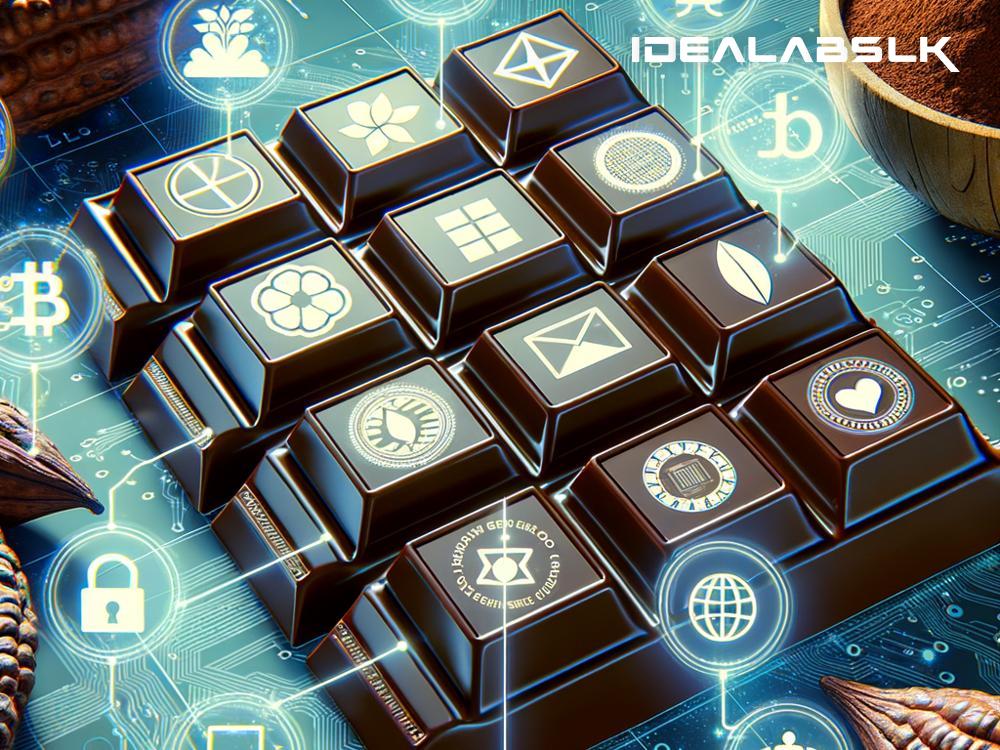Unwrapping the Sweet Benefits of Blockchain for Ethical Sourcing in the Chocolate Industry
In today’s world, more and more people are asking questions about where their food comes from. This is especially true for chocolate lovers out there. Behind every bar of chocolate, there's a long journey from bean to bar. Sadly, not every step of this journey is sweet. Issues like unfair labor practices and environmental damage are bitter realities in the chocolate industry. But what if technology could help make this journey a bit more ethical? Enter blockchain, an innovative tech that promises to add a layer of transparency and trust to the chocolate sourcing process. Let’s unwrap how blockchain is making a difference.
A Little About Blockchain
Before we dive into the chocolaty details, here's a quick refresher on blockchain. Imagine it as a digital ledger that is shared among a network of computers. Every transaction or record entered into this ledger is verified by multiple computers in this network, making it nearly impossible to tamper with. Once a record is added, it's there for good. This system is most famously used for Bitcoin and other cryptocurrencies.
The Bittersweet Reality of Chocolate Production
Many of the world's cocoa beans, the primary ingredient for chocolate, come from West Africa. Unfortunately, this industry is plagued by problems like child labor, deforestation, and farmers not getting a fair share of the profits. Consumers and companies alike are increasingly concerned about these issues, demanding more transparency in the supply chain.
How Blockchain Sweetens the Deal
Blockchain technology offers a glimmer of hope in addressing these challenges. Here’s how it works in the context of the chocolate industry:
-
Traceability from Farm to Shelf: Through blockchain, every step in the journey of a cocoa bean can be recorded and verified, from the farm where it's grown right to the shelf where it's sold as a chocolate bar. Consumers can scan a QR code on their chocolate bar and see the whole history of where and how the cocoa beans were sourced.
-
Fair Compensation for Farmers: Blockchain can ensure that farmers are paid fairly and promptly. Since each transaction is recorded on the blockchain, companies can't delay or underpay farmers for their produce. This digital ledger provides a transparent record of payments.
-
Combatting Labor and Environmental Abuses: By making the supply chain visible, blockchain helps in identifying practices that are harmful to people and the planet. Companies can pinpoint where problems exist and work to correct them. Consumers can choose brands that are verified for ethical sourcing, encouraging more companies to follow suit.
-
Smart Contracts for Efficiency: Blockchain utilizes something called “smart contracts” - these are automated, self-executing contracts where the terms are directly written into code. In the chocolate industry, this could streamline agreements between farmers and companies, ensuring timely payments and adherence to ethical standards without needing a middleman.
Real-World Chocolate Blockchain Initiatives
Several chocolate companies, driven by the desire for sustainability and ethical sourcing, are already exploring blockchain. For instance, big names in the industry have launched pilot projects that trace the journey of their cocoa beans using blockchain. There are also initiatives focused on empowering smallholder farmers by giving them access to blockchain platforms. This helps them to secure better market positions and practices.
Sweet Future Ahead?
However, it’s not all smooth sailing. Integrating blockchain into the global chocolate supply chain faces hurdles like technology adoption among farmers, who may lack access to the necessary tools and education. Plus, the effectiveness of blockchain relies heavily on the honesty and accuracy of the data entered into the system.
Despite these challenges, the potential of blockchain to sweeten the deal in the chocolate industry is undeniable. As technology evolves and more stakeholders come on board, we could see a future where ethically sourced chocolate is the norm, not the exception.
In Conclusion
Blockchain technology, with its promise of transparency, traceability, and trust, offers a beacon of hope for ethical sourcing in the chocolate industry. While it's not a magic solution, it’s certainly a step in the right direction. As consumers, supporting companies that invest in blockchain for ethical sourcing is a powerful way to promote positive change. So next time you indulge in your favorite chocolate treat, take a moment to consider the journey it’s made and how technology like blockchain could make that journey a little sweeter for everyone involved.

